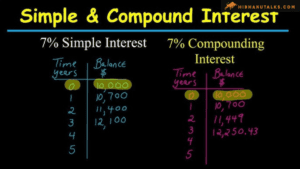
ITR Filing Deadline: Consequences of Missing July 31 and Interest Charges
Contents
- 1 ITR filing deadline consequences
- 1.1 ITR Filing Deadline: Consequences of Missing July 31 and Interest Charges
- 1.1.1 Consequences of Missing the July 31 Deadline
- 1.1.2 Penalty for Late ITR Filing
- 1.1.3 Additional Implications of Late Filing
- 1.1.4 Conclusion
- 1.1.5 FAQs
- 1.1.5.1 What is the deadline for filing Income Tax Returns?
- 1.1.5.2 What happens if I miss the ITR filing deadline?
- 1.1.5.3 What are the two tax regimes available?
- 1.1.5.4 What is the penalty for late ITR filing?
- 1.1.5.5 How is the interest calculated for late ITR filing?
- 1.1.5.6 Can the penalty for late filing exceed the outstanding tax amount?
- 1.1.5.7 What is the impact of late filing on carrying forward losses?
- 1.1.5.8 Can I still choose the old tax regime if I file a belated return?
- 1.1.5.9 Are there any exemptions to the late filing fee?
- 1.1.5.10 What should I do to avoid penalties and interest charges?
- 1.2 ITR filing deadline consequences
- 1.3 MICL Group Shares Rise on Successful Sales Milestone for Aaradhya OnePark Project
- 1.1 ITR Filing Deadline: Consequences of Missing July 31 and Interest Charges
ITR filing deadline consequences
ITR Filing Deadline: Consequences of Missing July 31 and Interest Charges
The deadline for filing Income Tax Returns (ITR) is fast approaching on July 31. Missing this deadline can lead to significant consequences, including interest charges and penalties. In this article, we will discuss the implications of failing to file your ITR on time, the penalties involved, and how it affects your tax regime selection.


Consequences of Missing the July 31 Deadline
If you miss the July 31 deadline, you still have the opportunity to file a belated return by December 31, 2024. However, failing to submit your ITR by the deadline will automatically assign you to the new tax regime. This means forfeiting the option to select the old regime for the respective financial year.
Understanding the Tax Regimes
Currently, there are two tax regimes in operation:
- Old Regime: Features various deductions and exemptions.
- New Regime: Introduced in 2020, it features revised tax slabs and concessional rates but limits deductions and exemptions.


ITR filing deadline consequences
Penalty for Late ITR Filing
Late Filing Fees
If you fail to file your ITR by July 31, you can submit a late return. According to Section 234F of the Income Tax Act, a late filing fee of ₹5,000 can be levied. If your income does not exceed ₹5 lakh, the late filing fee is ₹1,000.
Interest Charges
Interest will be charged at the rate of 1% per month or part of the month on the outstanding tax amount from the due date. However, the penalty imposed cannot surpass the amount of tax in arrears.


Additional Implications of Late Filing
Forfeiture of Carry Forward Losses
Taxpayers who file their returns late will lose the opportunity to carry forward any capital losses they might have suffered. This means you won’t be able to use these losses to offset future gains, resulting in a higher tax liability in the upcoming years.


Conclusion
The deadline for filing Income Tax Returns (ITR) on July 31 is crucial for taxpayers. Missing this deadline can result in penalties, interest charges, and mandatory assignment to the new tax regime. Understanding the consequences, including late filing fees and interest charges, is essential. Additionally, late filing can lead to forfeiture of the ability to carry forward losses, impacting future tax liabilities. Therefore, it is advisable to file your ITR on time to avoid these negative repercussions and maintain financial compliance.
FAQs
-
What is the deadline for filing Income Tax Returns?
A. The deadline for filing Income Tax Returns (ITR) is July 31.
-
What happens if I miss the ITR filing deadline?
A. Missing the July 31 deadline allows you to file a belated return by December 31, 2024, but you’ll automatically be assigned to the new tax regime and may face penalties and interest charges.
-
What are the two tax regimes available?
A. The old regime, with various deductions and exemptions, and the new regime, with revised tax slabs and concessional rates but limited deductions and exemptions.
-
What is the penalty for late ITR filing?
A. A late filing fee of ₹5,000 is applicable. If your income does not exceed ₹5 lakh, the fee is ₹1,000.
-
How is the interest calculated for late ITR filing?
A. Interest is charged at 1% per month or part of the month on the outstanding tax amount from the due date.
-
Can the penalty for late filing exceed the outstanding tax amount?
A. No, the penalty imposed cannot surpass the amount of tax in arrears.
-
What is the impact of late filing on carrying forward losses?
A. Late filing results in the forfeiture of the ability to carry forward any capital losses to offset future gains.
-
Can I still choose the old tax regime if I file a belated return?
A. No, failing to file by the deadline automatically assigns you to the new tax regime, forfeiting the option to select the old regime for the respective financial year.
-
Are there any exemptions to the late filing fee?
A. The reduced late filing fee of ₹1,000 applies if your total income does not exceed ₹5 lakh.
-
What should I do to avoid penalties and interest charges?
A. To avoid penalties and interest charges, it is important to file your ITR on or before the July 31 deadline.





















2 comments